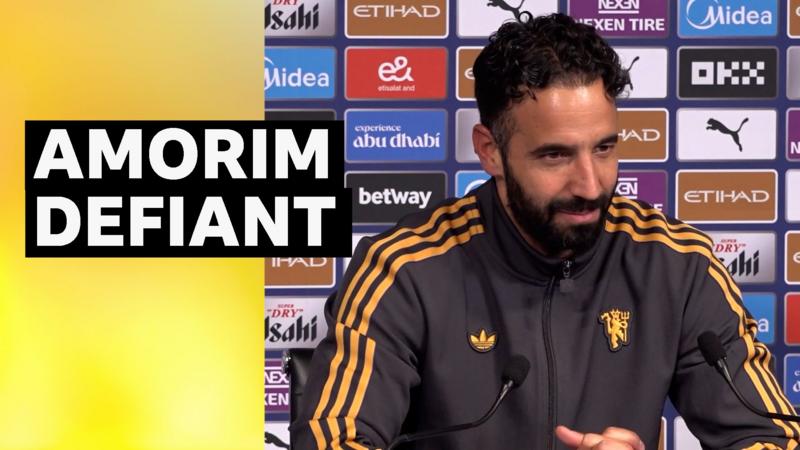Amorim Firm on Not Changing Formation, Sparks Debate



With the dust settling after Manchester United’s recent derby defeat, manager Ruben Amorim has come under the spotlight, not just for the result but for the tactical approach he staunchly adheres to. Despite the setback, Amorim has reiterated his dedication to the 3-4-3 formation, a system he has favored since taking the helm at Old Trafford.
Ruben Amorim's tactical philosophy has always been characterized by a dynamic and flexible approach to football. This is particularly evident in his preference for the 3-4-3 formation, which allows for a solid defensive background with three central defenders, while also providing width through the wing-backs and maintaining a threatening front three that can vary attacks. His strategy emphasizes quick transitions and a high-pressing game, aiming to exploit the spaces left by opponents.
Since arriving at Manchester United, Amorim has worked on embedding this strategic framework into the team’s DNA. The adaptation phase has seen varied results, with some impressive victories that showcase the potential of Amorim’s tactics. However, like any period of transition, there have been hurdles, the recent derby defeat being a prominent example.
In the aftermath of the match, questions were raised about the viability of the 3-4-3 formation, especially in high-stakes, high-pressure games. Critics argue that while the formation provides offensive advantages, it may leave the team vulnerable at the back against fast, attacking teams. This was visible in the derby, where Manchester United struggled to contain their rivals' dynamic forwards.
Despite these concerns, Amorim's resolve remains firm. In his recent interaction with the press, the Manchester United manager expressed confidence in his tactical approach. According to him, every formation has its risks and rewards, and success lies in perfect execution and player adaptability. He believes that with time and patience, his team will be able to fully internalize and express his tactical vision on the field.
Amorim’s commitment to the 3-4-3 is also a reflection of his broader philosophy that emphasizes resilience and adaptation. He has a history of building teams that can withstand various challenges and adapt to different styles of play. This approach not only led to his success at previous clubs but also made him a sought-after name in football management.
The support from the club hierarchy has been evident, with the board backing Amorim’s methods and giving him the latitude to shape the team’s future. This backing is pivotal, as tactical overhauls in football can require seasons of adjustment before they yield consistent results.
Looking forward, the key for Amorim and Manchester United will be how effectively they can bounce back from setbacks and refine their tactical approach. The players' ability to internalize and execute their roles within the 3-4-3 setup will be crucial. Additionally, strategic tweaks might be necessary to ensure that the team’s defense does not get unduly exposed while still maintaining their attacking prowess.
Manchester United’s journey under Amorim is a testament to the evolutionary nature of football, where ideas, big matches, and even defeats shape the course of a team. The commitment to a tactical system, especially one as intricate and demanding as the 3-4-3, showcases a belief in a vision that transcends individual games and focuses on long-term success.
Only time will tell how Manchester United’s tactical identity under Amorim will evolve. Yet, one thing is clear — in the world of football, resilience and a clear vision often pave the path to success, something that Amorim and his team are striving towards, one match at a time.